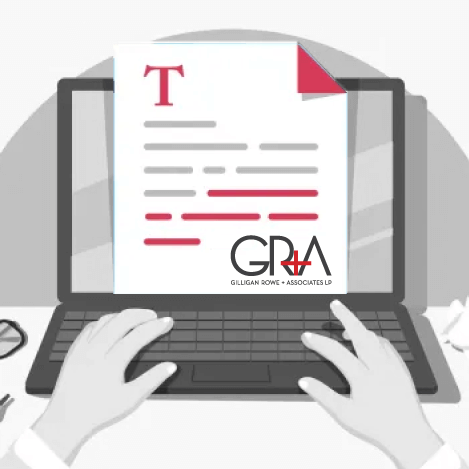
There have been many changes to legislation affecting property investors over the past 4½ years.
We have had:
• Healthy Homes Standards
• Loan-to-value ratio (LVR) changes
• Requirement for heat pumps
• Loss of claiming interest as an expense
How have property investors reacted and what has happened?
Before I go on, there is one thing I want to get off my chest first. For years, the Government has attempted to disadvantage property traders and/or renovators. Two points on that:
1. They have been trying to penalise traders (“speculators”) by bringing in capital gains tax or something similar. However, traders (at least the best and honest ones) pay tax like anyone else in the country. In fact they pay more! If a trader makes $60,000 on renovating a property (to bring it up to the new Government standards) and then sells the property, they must pay a third tax, GST, and then real estate costs; so about half of the profit. No capital gains tax is going to affect that; they already pay tax on profit, just like any industry in New Zealand.
2. Bringing the latest rule in mind, traders can still claim interest as an expense, just like every other business in New Zealand can. In fact, the only group of businesspeople who cannot are property investors – the ones who are providing a roof over the heads for about half the country. Why is this? Is this fair? The Government desperately need properties to house good New Zealanders. So why would they penalise the one group that can solve half of the housing crisis problem, and seemingly actively encourage them to get out of owning a rental? It just does not make any sense.
The average medium priced property is just over $800,000. To illustrate the effect of the new legislations, let’s assume an investor has borrowed $800K at 3% and has a tax rate of 33%. Once the new interest non-deductibility rule kicks in, the investor’s cash flow will reduce by $8,000 per year. If interest rates increase, this loss will get even bigger. This could easily make an investment that was generating positive cashflow into one that is cashflow negative, which for many investors will make properties untenable to own as investments. Additionally, it would likely cost the investor $5,000—$10,000 in the first year of ownership for insulation, heat pumps and anything else to get compliant with Healthy Homes Standards. I certainly believe tenants should have warm, dry homes to live in, but combined with the new interest non-deduction rules, it is becoming harder and harder to make rental properties work as an investment.
So, what now?
The loss of claiming interest as an expense is phased in over four years, so landlords will sell. In fact many already have, and many are going to. Many average New Zealanders wanting to improve their wealth by owning a rental property will find this strategy is no longer affordable for them. I recently spoke to a real estate agent in Tauranga who said he knows of some older people who owned a rental in town. Now they are selling their own home and moving into the rental, as they can no longer afford to have it as an investment property. Where do those tenants go?

What does all this mean?
As more and more rentals are taken out of the market, there are more and more homeless people. It is only going to get worse over the next four years. If the Government thinks there is a problem now with not enough rentals and motels for tenants, get the calculator out and push the multiplication button. That is how I see it anyway.
Yes, I agree some things were essential and had to happen, e.g. Healthy Homes. However, there were so many expenses in such a short period of time, it has crippled some property investors. Some have been forced to sell and cash up, instead of putting their money into another rental for another Kiwi family to live in. This would assist with the housing shortage, but the Government has taken away any cashflow they might have dreamed about.
I do not want to get into the Government, but although I’m not especially clever, even I can work out that if they sat down and looked at the flow-on situation for the end user (the average Kiwi that wants to rent), they would see they have made a tragic decision that is going to cost every New Zealander in increased taxes moving forward to house tenants.
We were already seeing a massive shortage of rentals, that are even harder to get now, especially the lower priced ones. What does that do? Simply, the rents go up due to supply and demand.
I am an advocate for new builds and the new rules have certainly encouraged investors to buy them. However, that does not help the first home buyer out there who just cannot afford a home, nor the people who simply want a place to rent.
A request from me to the Government: Please discuss these rules in public or with experts in the field before you implement them and make them mandatory!

Guest Contributor
Invited guest writer
Did you like this article? Subscribe to our newsletter to receive tips, updates and useful information to help you protect your assets and grow your net worth. We're expert accountants providing expert advice to clients in NZ and around the world.
Disclaimer: This article is intended to provide only a summary of the issues associated with the topics covered. It does not purport to be comprehensive nor to provide specific advice. No person should act in reliance on any statement contained within this article without first obtaining specific professional advice. If you require any further information or advice on any matter covered within this article, please contact the author.
Comments
Testimonials
When we started with GRA we werent certain of the benefits they could provide us. However they quickly unravelled our complex situations with multiple companies and structured our businesses so that we received maximum personal protection and minimised our tax liabilities. They have always been accurate on time thorough and available to answer our questions. Now six years after first moving to the team at GRA they have skilfully guided us to a future that looks amazing. It is with confidence we make decisions knowing our interests are protected by an outstanding group of modern forward thinking professionals. Their guidance has been invaluable and we can thoroughly recommend GRA - Dougall Love and Janice Knowles - June 2017
Property 101by Matthew Gilligan
Investing in residential property?
Put this at the top of your reading list.
If you're investing in residential property, seeking to maximise your ability to succeed and minimise risk, then this is a 'must read'.
Matthew Gilligan provides a fresh look at residential property investment from an experienced investor’s viewpoint. Written in easy to understand language and including many case studies, Matthew explains the ins and outs of successful property investment.
- How to find the right property
- How to negotiate successfully
- Renovation do's & don'ts
- Property management
- Case studies and examples
- and much, much more...









































